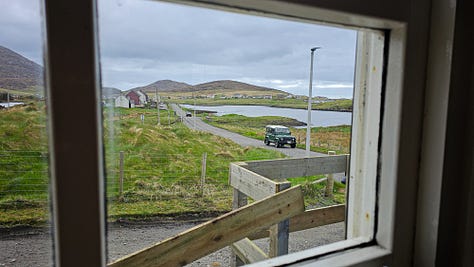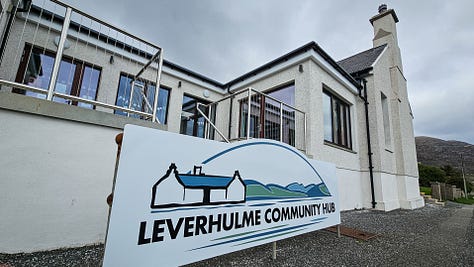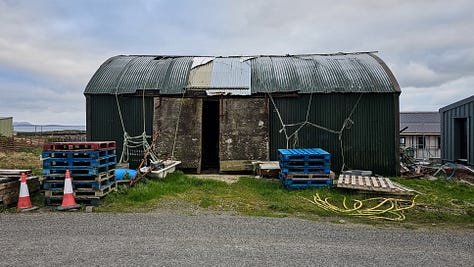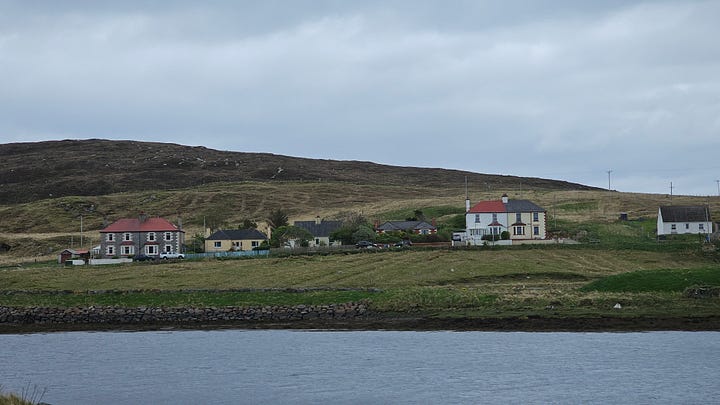Leverhulme's Lost Empire
100 years after a doomed project to industrialise the Outer Hebrides, it's time to reflect on the problem of stewardship
Today’s instalment of Journeys in Place & Time comes to you from the coastal town of Leverburgh, in Scotland’s Outer Hebrides.
Huge thanks to all my readers, but particularly the tiny team of paying subscribers who support my work here. You’ll find my 8-minute voiceover of the whole post beneath the paywall. (I’m quite rubbish at these, but hopefully improving.)
It’s said that life moves at the speed of decision making. If that’s true, then the Hebridean dream of Lord Viscount Leverhulme can teach us something about how to get big things done – or rather, how not to.
His death 100 years ago today (7th May 1925) marked the end of a six-year whirlwind that Leverhulme had brought to the Outer Hebrides. The pace and the promise of change that he introduced here had never been seen before, but it all came to nothing. One of the British empire’s wealthiest businessmen and a former Liberal party MP, Leverhulme has been criticised for inflexibility, insensitivity and an unwillingness to compromise. But he also upheld a progressive (for the era) vision of what he called “moral capitalism”, and left a philanthropic legacy that echoes in the present.
It’s unlikely that today’s anniversary will get much public recognition, but his name remains known in these islands – largely thanks to the town of Leverburgh which was renamed in his honour. And it’s from Leverburgh’s community café called The Bothy that I’m drafting this post.





The wooden window frames and corrugated metal exterior speak of a previous era, and I expect the building may date from Leverhulme’s time. Outside my little window can be seen the row of houses that line the main road, built with Leverhulme’s money to house the workers that he imagined would live here.
It’s a quiet and sprawling little town, gathered around an intricate coastline where the Atlantic creeps into a sheltered inlet. Leverburgh’s original name in Gaelic – An t-Ob, Anglicised to Obbe – simply means The Bay, and this geography explains Leverhulme’s fixation on the place.
With Leverhulme’s investment and under his direction, Obbe was to become the heart of a vast fishing empire. Vertical integration was the aim of his game. The plan was to establish a mighty fleet of fishing trawlers, whose catch would be distributed via his existing chain of 400 fish wholesalers. This was to be complemented by new investment in the whaling station at Bunavoneader (which I wrote about last week), with surplus whale meat potentially being canned for export.
The resulting income would provide a huge boost in local employment. For the people of Harris – whose landlords had historically not always acted with their best interests at heart – a better quality of life lay ahead. That was the idea anyway.
Keep reading with a 7-day free trial
Subscribe to Ways of Life to keep reading this post and get 7 days of free access to the full post archives.




